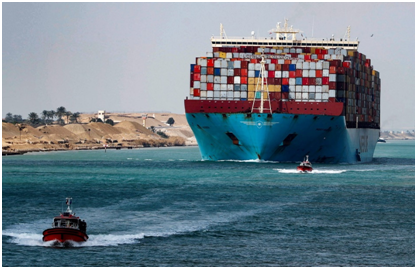
The Red
Sea crisis is expected to adversely impact trade volumes in a
substantial way in 2024, said a report by GTRI, adding that rising shipping, and
insurance costs, delayed arrival of shipments will continue to disrupt global
value chains, squeeze margins and make exports of many low margin products
unviable from current locations.
Countries like Asia, Africa and Europe will face the most disruption across
industries. Started in a major way on October 19, 2023, the Red Sea crisis is
in its fifth month now.
The Red Sea shipping crisis has disrupted
global trade and supply chains, particularly affecting routes through the Suez
Canal said GTRI. Expectedly, longer journey delays shipments, thus affecting
the trade finally.
The impact of the ongoing crisis impacted Indian
trade, especially with the Middle East, Africa, and Europe. Shipping costs for all container goods,
including cars and electronics are also up
“While India is
implementing measures to ensure the safety of its ships in the Red Sea, the
effectiveness may be limited as most Indian cargo is carried by global shipping
firms,” GTRI said. Further, India can
also rely on ports outside conflict zones, like Oman and Djibouti, for
transshipment and regional trade.
“Firms are
adopting strategies like multiple sourcing for less complex components to
maintain supply continuity and cost efficiency. For more complex and critical
products, companies are exploring strategic sourcing options including
onshoring, nearshoring, and friendshoring to reduce geopolitical risks and
ensure supply chain resilience,” it said.